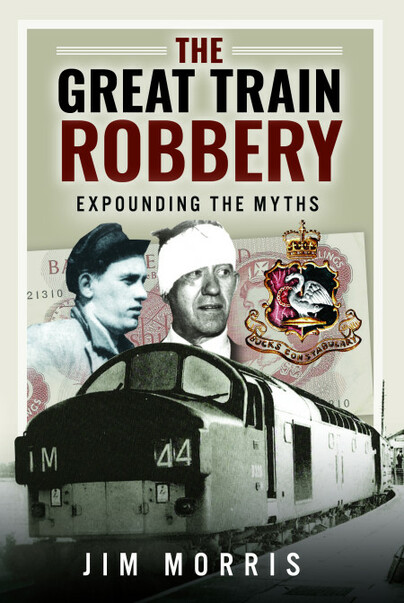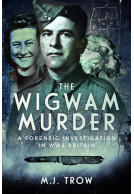The Great Train Robbery (Hardback)
Expounding the Myths
By
Jim Morris
Imprint: Pen & Sword True Crime
Pages: 200
Illustrations: 32 mono illustrations
ISBN: 9781399038317
Published: 14th April 2025
Imprint: Pen & Sword True Crime
Pages: 200
Illustrations: 32 mono illustrations
ISBN: 9781399038317
Published: 14th April 2025
You'll be £20.00 closer to your next £10.00 credit when you purchase The Great Train Robbery. What's this?
+£4.99 UK Delivery or free UK delivery if order is over £40
(click here for international delivery rates)
Need a currency converter? Check XE.com for live rates
(click here for international delivery rates)
Need a currency converter? Check XE.com for live rates
This is a fresh examination of the ‘intelligence’ gathered for the great train robbery.
The suggestion of an Irishman (‘The Ulsterman’) was simply part of a package created by the robbers in time for their release from prison and to contribute to the subsequent book – everything since has compounded the ‘mystery’. Gordon Goody was one robber who ‘met’ The Ulsterman and speaks highly of The Ulsterman’s information, but this information could easily be found elsewhere, and some of it is incorrect.
So who else might have given ‘intelligence’? One by one, other ‘suspects’ are identified and discounted, but with evidence for their defence.
To use the metaphor ‘hidden in plain sight’, one can identify another ‘suspect’ with all the attributes The Ulsterman was said to have. If the reader is willing to look at the evidence afresh, it’s necessary to consider not what the robbers et al have said, rather what they haven’t said.
The robbers were dishonest men who frequently lied – but writers and commentators have followed what they have said. And it hasn’t really led anywhere.
To unravel the yarn presented, it wasn’t a senior official in either the Post Office or British Rail. It was an ‘ordinary thief’ with an extraordinary ability to blend into the background, and have fingers in a great many pies.
Let’s expound the myth.
There are no reviews for this book. Register or Login now and you can be the first to post a review!
About Jim Morris
Jim Morris published The Great Train Robbery - A New History in 2013 for the fiftieth anniversary, and has published other true crime studies. He is a former mental health worker interested in behaviour and with a natural curiosity in folk who buck the system, not necessarily criminals.
Jim is a people watcher. Experts don’t exist, there is only expertise and that’s shared.
History relies on interpretation and sometimes we interpret the recording of facts, but not the facts.
Other titles in Pen & Sword True Crime...














